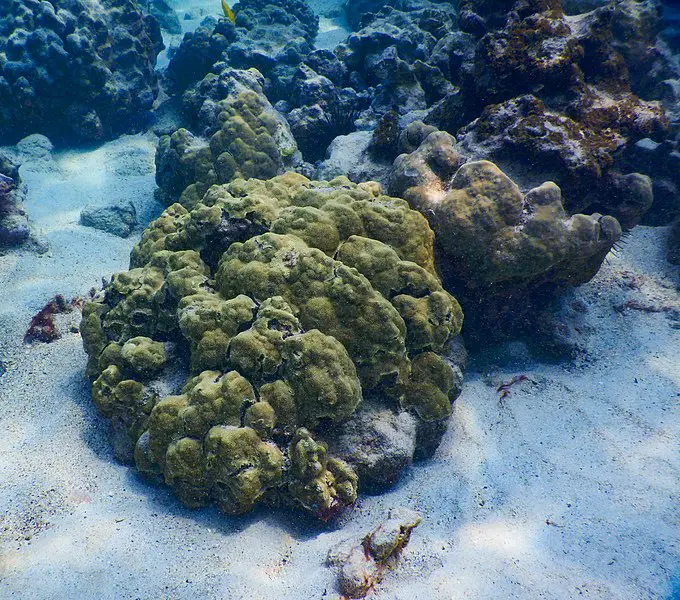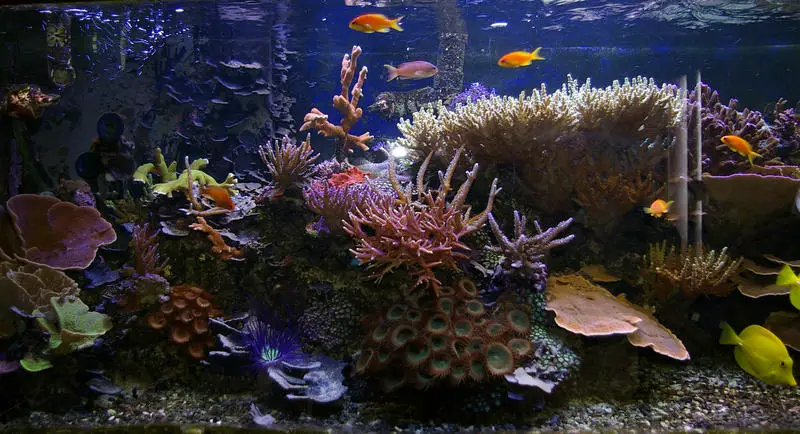If you’re not an aquarist and someone mentions super glue in an aquarium, you might do a double-take. But, it’s true, you can use superglue inside of a reef tank or an aquarium or whatever you want to call it. It all adds up to the same thing. And it is safe, so long as you use a specific type of super glue.
Some super glues are probably not going to be safe inside a reef tank, however, if the superglue is Ethyl or Cyanoacrylate then it’s absolutely fine, as those are the most common types of superglue used in reef tanks. It’s not just super glue either. You can also use types of cement, silicone, and hot melt glue.
You may be shocked to know that Gorilla Glue can be used in a reef tank, so long as it’s Gorilla Glue Gel, not standard Gorilla Glue. In fact, the odds are, if you just grabbed a random superglue off of a Dollar General shelf, you’d probably be okay using it in your reef tank.
That doesn’t mean that you should choose that way, just that you’re probably okay to use most of them.
Does Super Glue Hold Saltwater?
The question basically boils down to whether or not super glue is waterproof. Salt is the fly in the ointment because it can be corrosive to certain elements, especially most metals. In terms of waterproof, nothing can meet the standard of being waterproof, because water will destroy anything given enough time, even if it’s billions of years.
The real question is, is it water-resistant enough to withstand the water and salt element of your tank for a long enough period of time to make it a viable resource for repairing coral or any other use within the reef tank? No superglue can indefinitely resist water, so you have to go with one that will resist it the longest.
The type of super glue that will hold saltwater the longest has to have an ANSI/HPVA Type 1 resistance standard. You will find that standard on the following superglues:
- Gorilla Super Glue
- Gorilla Wood Glue
- Loctite Super Glue
- Krazy Super Glue
- Scotch Super Glue
The ANSI/HPVA Type 1 standard should be labeled openly on the back or on the front of the superglue bottle. None of it will last forever, and the saltwater will definitely break it down over time, but the above superglues will give you the longest period of time.
Is Super Glue Waterproof?
Almost nothing is waterproof except, perhaps, more water, and superglue is no exception. Properly labeled, it will say water-resistant. Many devices, materials, and products are not even legally allowed to place the label “waterproof” on their products because even if it keeps water out for a hundred years before failing, that means it’s not waterproof.
Basically, your choice in superglue boils down to how water-resistant it is. You want a super glue that is going to resist water as much as possible and for as long as possible. You want an ANSI/HPVA Type 1 super glue that is going to give you the best adhesion and resist water for the longest period of time.
Is Super Glue Safe for Reptiles?
Super glue is generally safe for reptiles so long as you make sure that it is completely cured before your Bearded Dragon, Snake, lizard, or any other type of pet reptile gets near it. The most common kind of super glue that is associated with reptile tanks is Cyanoacrylate based super glue.
In fact, the Gorilla Glue Gel that is frequently used in reef tanks is also perfectly safe for reptiles. It cures fast, but you want to make sure that your lizard is well away from it until it is completely cured. The last thing you want is for your Bearded Dragon to try and lick something with fresh Gorilla Glue Gel in the tank nearby.
As you would in a reef tank, you want your super glue to be non-water soluble. ANSI/HPVA Type 1 remains the best rating for super glue that you would apply near to around a reptile habitat. PVA glues, such as you would find in arts and crafts are generally considered safe, however, if your reptile ingests any of it, the glue will cause gastrointestinal problems.
Is Super Glue Safe for Plants and Corals?
Cyanoacrylate, the active ingredient in many super glues, is considered to be non-toxic to aquatic life. They use the stuff in surgery to close arteries after a catheter is inserted. Its more than effective at gluing coral together and plant roots to rocks. In order to use it effectively, you have to ensure that everything being glued is dried.
That means removing it from your reef tank and drying everything by dabbing it with a towel. Once everything is dry, you can start applying the super glue. Make sure that you do it quickly because these types of glues don’t take long to cure enough to become hardened and resistant to sticking anything to it.
It works best on porous surfaces, and that’s definitely something that you get when dealing with coral. You can use it to repair or to modify your coral and plants, so long as you don’t slather it on or just overdo it in general. In other words, you don’t need to use a ton of the stuff, but just enough to get the job done.
Is Super Glue Toxic for Fish?
Cyanoacrylate and Ethyl are not toxic to fish. On some super glue bottle, you might find just the word, Cyanoacrylate, while on others you will see the words Ethyl Cyanoacrylate, which only means that it is the same as Cyanoacrylate but with a different chemical composition.
The Ethyl Cyanoacrylate in some superglues is every bit as effective as the standard Cyanoacrylate, so you don’t have to worry about a drop-off in efficacy between the two. Either way you choose to go, the bonding time is quick, and they’re both long-lasting with no toxic threat to the aquatic life in your reef tank.
- Extreme temperature resistance
- Waterproof
- No cracking, peeling or shrinking
- Gap filling
- Flexible bonds
- GEL FORMULA: No run control gel formula that is great for use on vertical surfaces
- ANTI CLOG CAP: Helps keep the glue from drying out. It's Gorilla tough use after use.
- IMPACT TOUGH: Specially formulated for increased impact resistance and strength
- FAST-SETTING: Dries in 10-45 seconds. No clamping required.
- VERSATILE: Bonds plastic, wood, metal, ceramic, rubber, leather, paper and more. Not recommended for use on polyethylene or polypropylene plastic or similar materials.




